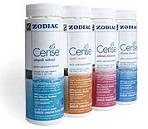Why Use MPS-Shock In a Spa or Hot Tub
One of the most frequently asked questions we get is “why use non-chlorine spa shock?”

In order to answer this question, we need to understand what sanitizer does, and this will help you understand why it is important to add shock at all.
Sanitizing your spa water is the most important spa maintenance you can do for yourself. Soaking in a spa is like taking a bath however you do not drain the spa when you are done like you would your bath tub. The warm water of hot tubs provides an ideal breeding ground for potentially harmful microorganisms. If we do not maintain an effective sanitizer system to control them, bacteria from our bodies, as well as airborne mold spores, algae, and even viruses can find their way into the water.
A Sanitizer such as Chlorine, Bromine, Nature2 or Spa Frog is used to destroy these microorganisms and keep the spa water safe and healthy. When using a sanitizer alone, the sanitizer has to do two jobs. The first is to destroy microorganisms, and the second is to oxidize (burn up) the dead organic material left behind in your water, as well as non-filterable material such as dirt, soap films, hair spray and perspiration. That is a lot of work for the sanitizer to do.
MPS Shock (MonoPeroxySulfate) is a non-chlorine compound that will do the job of oxidizing, allowing the sanitizer to do the more important job of destroying the microorganisms. Regardless of which sanitizer you use, shocking is essential for clear, clean hot tub water. It will also allow your sanitizer to perform at peak efficiency.